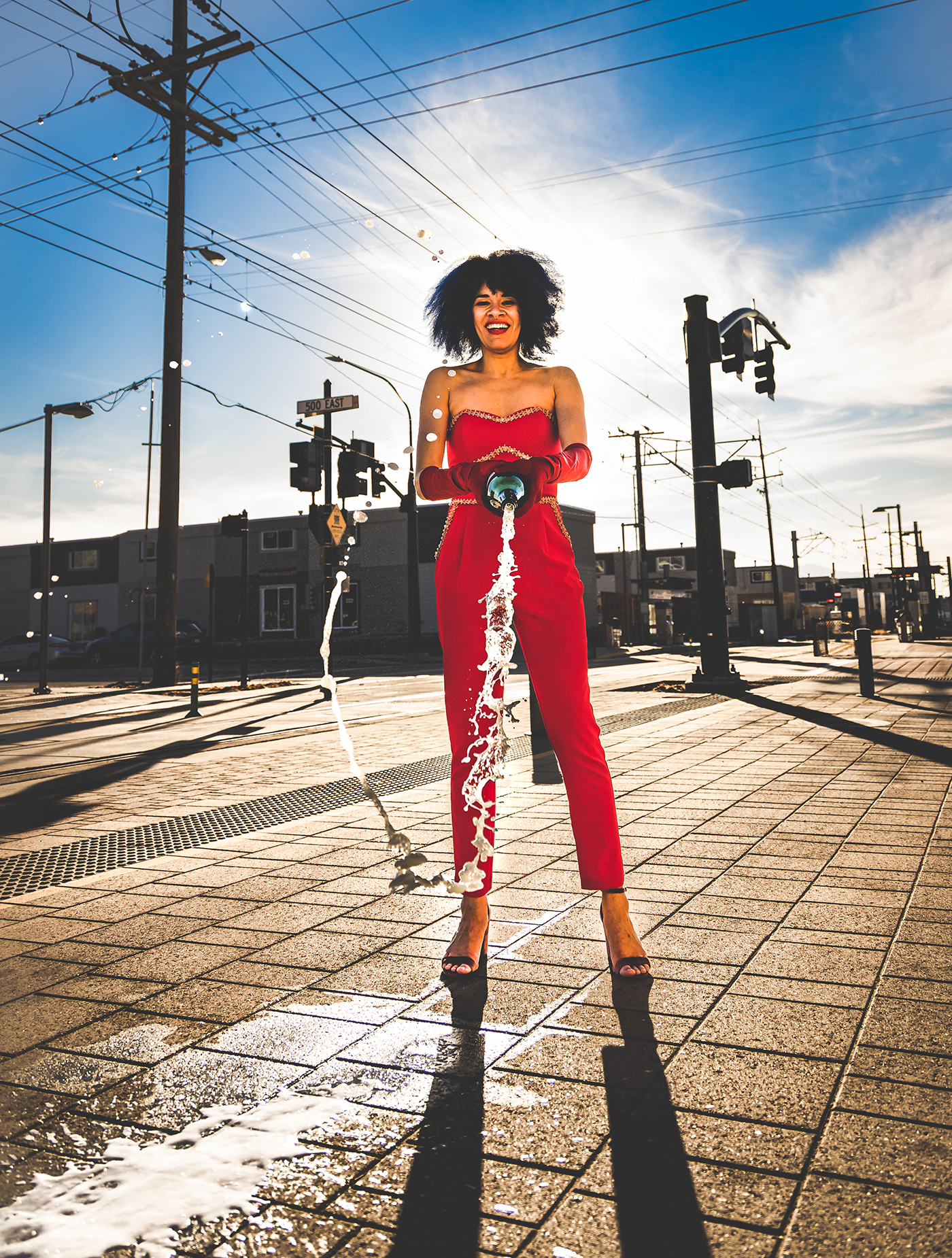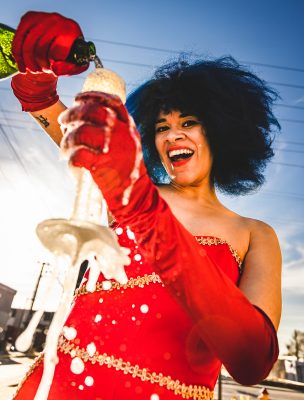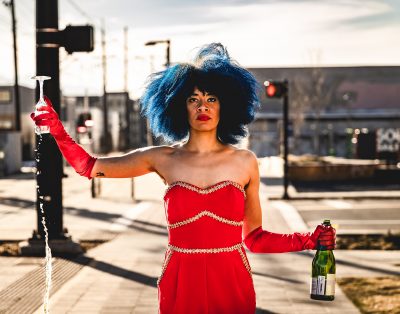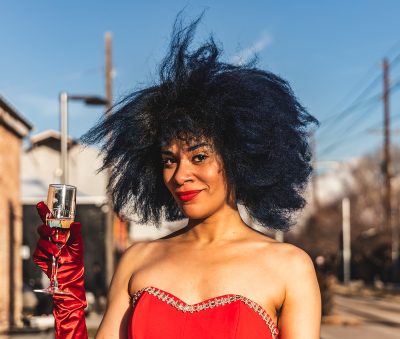
Tell Me Something Good: Performance with Alexandra Barbier
Community
After a shit year, Alexandra Barbier wants to celebrate with you. In her upcoming performance piece for the virtual Salt Lake City Performance Art Festival, TELL ME SOMETHING GOOD!, Barbier will celebrate eight people’s successes and their good news through a dynamic performance that includes dance, confetti, applause, champagne and more.
In the span of about 40 minutes, Barbier will be handed submissions she’s been collecting through her website and read them aloud. She’ll then spin a wheel marked with various methods of celebration and follow through on whichever activity it lands on, ranging from eating cake to dancing. Barbier will not have seen the submissions until the moment she reads them, so combined with the set activities from the wheel, TELL ME SOMETHING GOOD! provides Barbier a structure in which she can improvise her celebrations.
“What I’m trying to focus on in this performance is the unexpected nature of performance art,” says Barbier. While the celebratory acts on the wheel are predetermined, the order of the performance can’t be rehearsed. “Improvisation leads to unpredictability. There’s some part of my nature that really enjoys surprise and playfulness and spontaneity,” she says.

“Improvisation leads to unpredictability.”
In 2020, if it wasn’t one thing, it was another. Barbier’s emphasis on playful improvisation is extremely welcome after months of identical days and isolation from each other. Though this performance doesn’t necessarily focus on dance, it’s built on Barbier’s lifelong history of dance as her foremost practice. In her time studying dance in the University of Utah’s MFA program, Barbier has focused on tapping into the ways dance has historically brought people together.
“So much of how I think about dance now has changed because of coronavirus,” Barbier says. “I’ve gotten really interested in Black vernacular dance, particularly of minstrel shows [and] vaudeville shows from the late 1800s and early 1900s.” Those forms of dance were happening in the social dance clubs in Harlem during its renaissance, and they are the forebears of what we understand today as jazz and tap. The movements that made up those dances eventually became self-evident vocabulary and became easily repeatable but still gave room for individual expression, Barbier says, and they were activities that made communities come together.
Barbier, a Salt Lake transplant who arrived in 2017, doesn’t recall exactly when she conceived of TELL ME SOMETHING GOOD!, but the collaboration with an audience is clearly building on the foundation of her thesis project she completed as part of her MFA program, which she completed at the U in the spring of 2020.

“So much of how I think about dance now has changed because of coronavirus.”
“It makes sense to me that this is what comes next,” she says. “For my thesis, it was in person and interactive. It was all about creating relationships between performers and spectators, and I feel like this is doing the same thing but in a more distanced way.” It was a response to the nearly 30 years Barbier had spent with dance to that point, an experience that reinforced dance as rigid and formal. She grew up doing ballet, transitioned to modern dance as she got older and eventually “got to a point where I hated all of that,” she says.
Barbier’s interest in making dance feel more accessible and relevant is entwined with her study of dance as a history, especially as it intersects with Blackness. Dance, and conceptions of the possibilities of what dance can be, vary by place and people, and the spread of those dances among its groups is different, too. “There’s this difference between learning from a dance master, which is very valuable to a lot of people who participate in Eurocentric, Western ways of thinking, and then there is dancing in your community and learning from your community, which is very popular in African diasporic dances. That doesn’t mean those dances don’t have teachers—that’s not what I’m saying—but there is a difference that many dance historians have noticed in the transmission of information when it comes to dancing.”

Of all of the art forms, people are most afraid of dance, she asserts. Our culture is rooted in a puritanical desire to control and judge our bodies. “Since [bodies are] the main tool of dance, a lot of people get nervous and uncomfortable imagining themselves as dancers,” she says. “These dance TV shows that really value virtuosity and intense training, I think that’s restrictive. It makes dance this exclusive act that only lets certain people [perform] based on the ability of their body, shape and size of their body. That pissed me off.” In response, Barbier doubled down on exploring methods of dance that promoted community and that were anti-training, anti-technique and anti-virtuosity. “If we tell people that they have to train to be dancers, we’re turning away a lot of people. That’s not helpful for us right now. We need as many people as we can get, right?”
You can offer up your success to Barbier for potential celebration at her website, abarbier.com, in preparation for the SLC Performance Art Festival this April 2–3. More information on the festival is available at nowplayingutah. If you miss the live show, you can also watch Barbier’s archived version on her site, abarbier.com, where she’ll upload the footage within two days following the festival. Follow Barbier on Instagram for more information @hello_alexandra, and be sure to show up ready to celebrate.
